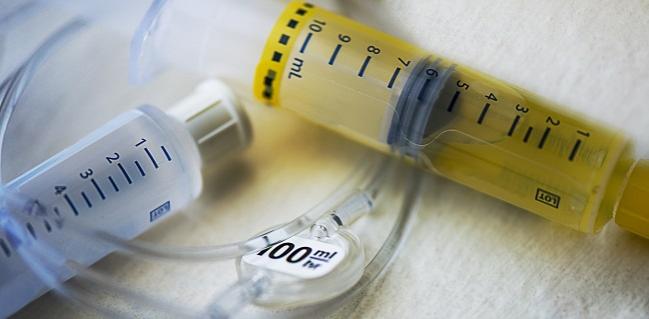FDA Is Surveilling Heparin but Believes Defective Quality Unlikely
The agency says it will continue to monitor any incoming reports or lab results related to unfractionated heparin.

The US Food and Drug Administration says it has received of reports from clinicians describing higher than usual doses of unfractionated heparin being needed to achieve target activated clotting times (ACT) during cardiac procedures but cannot confirm a specific issue at this time.
As reported by TCTMD, cardiologists around the world have reported concerns about subtherapeutic heparin and, in the absence of clear direction from regulators and industry, have turned to peers on social media seeking guidance and answers.
“Reports describing a requirement of higher than usual doses of heparin or the opposite, of bleeding following heparin administration, are not historically unusual for this drug,” an FDA spokesperson told TCTMD in an email. “FDA review of these reports is ongoing, but to date, the reporting has not had a consistent pattern suggesting deficient product quality.”
Additionally, the FDA confirmed that the agency has been testing various heparin samples that were provided, noting that “all samples tested to date have been within United States Pharmacopeia (USP) specification.”
The FDA will continue to monitor adverse event reports received related to heparin and encourages clinicians to keep submitting reports and results of any individual chemical analyses of heparin samples through MedWatch and to the manufacturer directly if a problem is suspected. The agency will also continue to perform “quality testing of imported crude heparin, active pharmaceutical ingredient (API), and finished dosage forms from all source countries to make sure the drugs meet quality standards,” according to the email.
“Because it is not unusual to see MedWatch reports describing variation in patient responses (eg, bleeding or higher than usual doses to achieve goal ACT), and based on the information that we have to date, we believe that variability in heparin response may be attributed to individual patient or healthcare system factors, and not a heparin product quality defect,” the statement concludes. “FDA will continue its surveillance of heparin.”
Yael L. Maxwell is Senior Medical Journalist for TCTMD and Section Editor of TCTMD's Fellows Forum. She served as the inaugural…
Read Full Bio

Comments